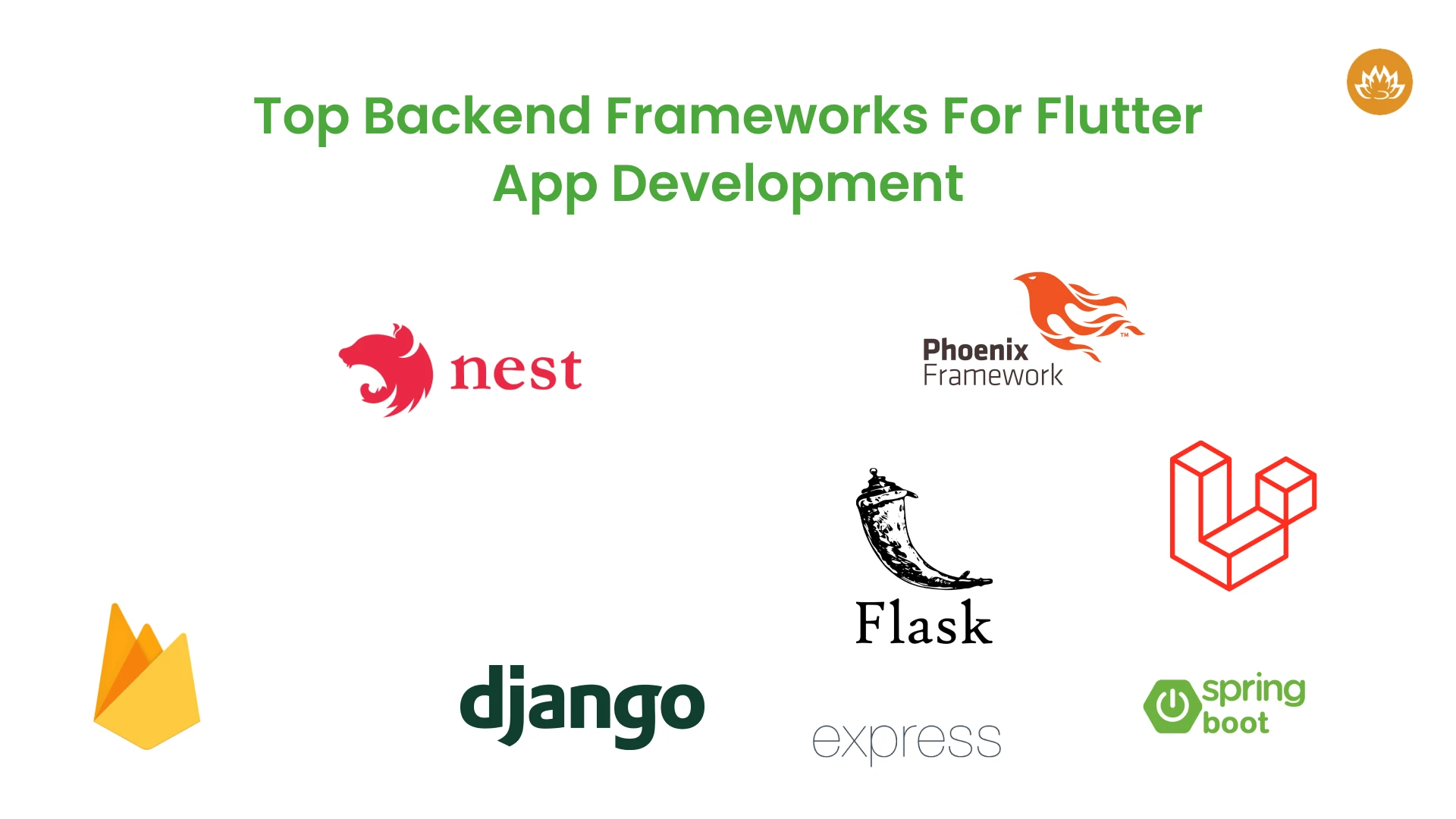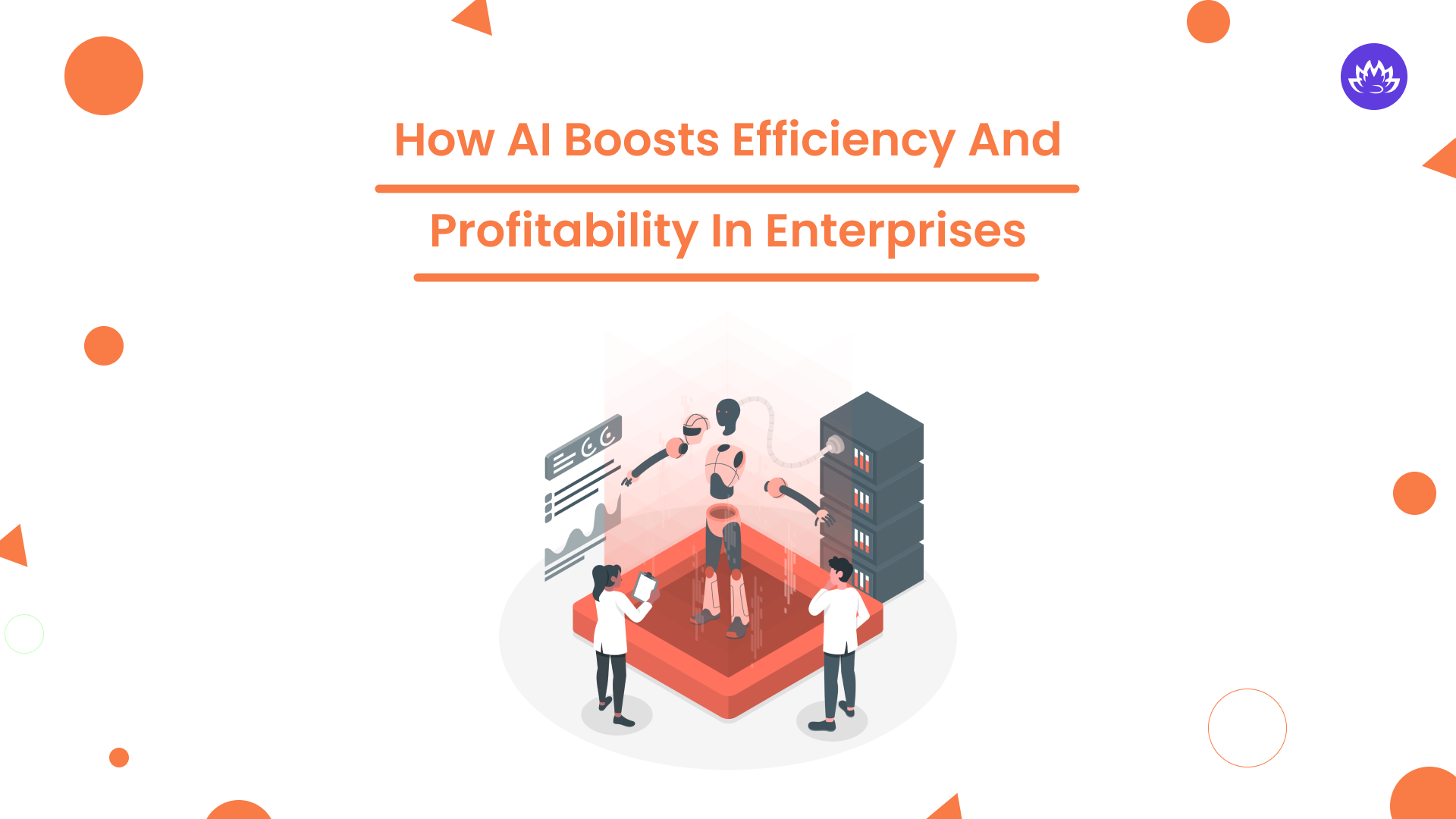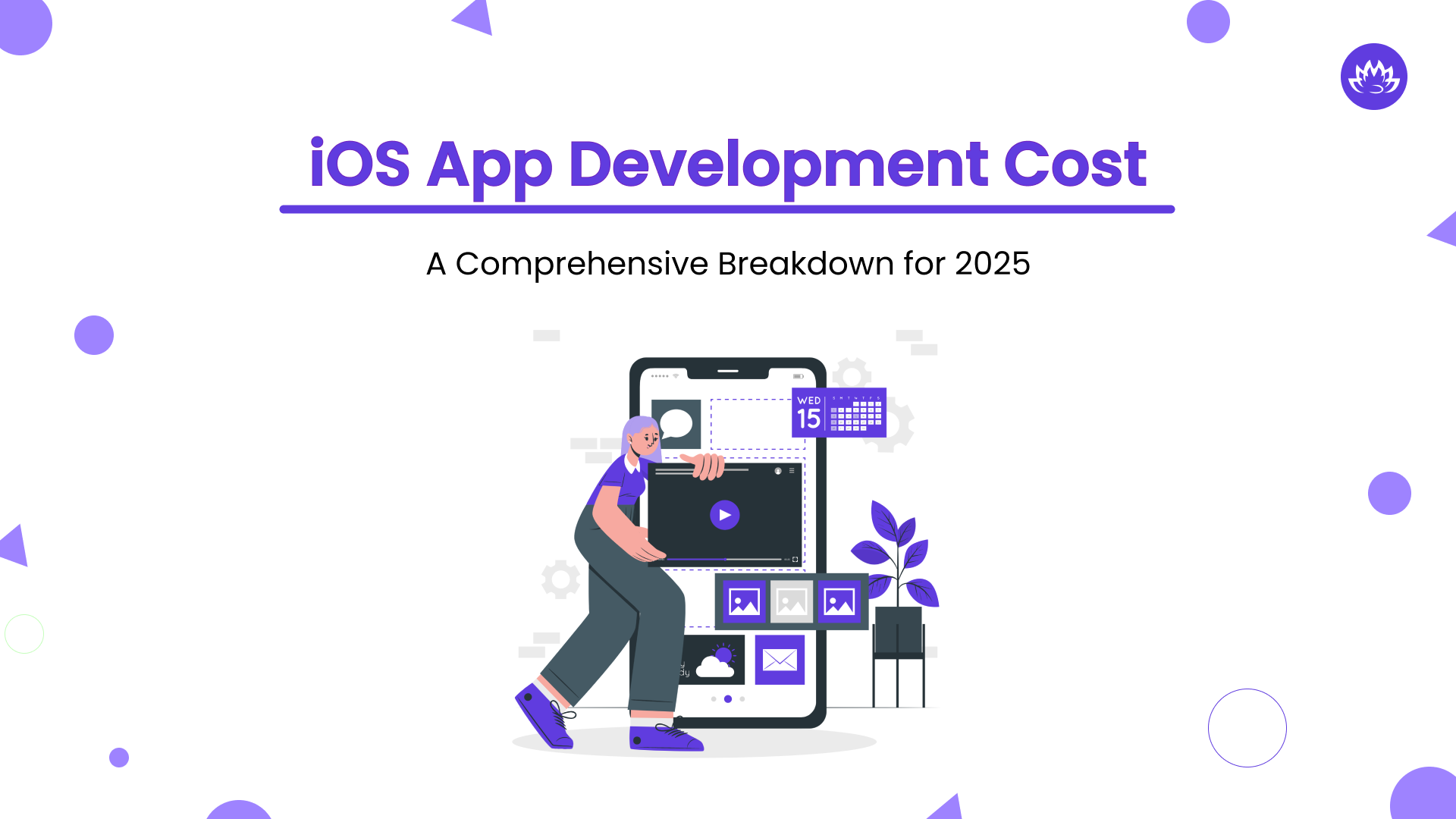Are you finding it difficult to choose the best backend framework for Flutter to work on your next project? If you ask any seasoned Flutter developer which is the perfect one, they will tell you it depends on its scalability, functionality, community support, and total performance. There are many BaaS solutions to help you build Flutter apps. But the most suitable is the one that can help you concentrate on the frontend functionality of Flutter SDK. So, are you in to know more about this?
Backend framework is the backbone of any successful Flutter application. Several backend frameworks can be used for Flutter app development. We have curated some of the most widely used backend solutions. You can also hire mobile application development services to meet your project goals. We use these backend frameworks for building an MVP, real-time apps, e-commerce software development, banking, and various small and large scale enterprise applications.
Best Backend Solutions for Flutter App Development.

1. Laravel
Advantages
-
Laravel can scale according to your project requirements
-
It can save time by using various tools like Redis and Memcached for data storage
-
You can put off longer tasks when there are multiple users.
-
It can work across multiple servers and can handle larger loads
-
Laravel is easy to learn and can organize routes and syntax effortlessly.
-
It has a large community and has built-in features to speed up the development process.
-
More than 40k developers contribute to Laravel’s main codebase, powered by top Larvel experts.
-
It can perform quite well due to its cached data and efficient task handling.
-
Laravel can manage heavy traffic through optimization and right setup.
-
Gets compatible when integrated with tools like MySQL, PostgreSQL, Redis, etc.
-
Can be integrated seamlessly with cloud services like Google Cloud, AWS, and Azure
-
Manages its dependencies in diverse environments with tools like Composer.
Best For:
-
Building small to large-scale apps
-
Content management system
-
Social networking apps and blogs
-
Third-party Integration for payment gateways
2. Django
Advantages
-
It grows as your project starts growing
-
You can scale up your app parts separately.
-
You can handle slow-moving tasks with tools like Celery
-
It can handle more work with load balancing and data management
-
There are in-built tools to perform everyday tasks such as database handling, managing website layouts, and creating admin panels
-
It helps beginners learn to program easily
-
It has extensive community support at places like Stack Overflow, local groups, and online forums.
-
It starts quickly when clear communication is available to the database.
-
It runs faster and can be used for caching and for making tweaks.
-
Django is highly compatible with Python and SQL databases.
-
You can hire Flutter developers to create apps using Django.
Best For:
-
For healthcare software development
-
Small and large-scale, enterprise-grade applications
-
SaaS platforms have user management features
-
API-driven apps, such as social media platforms
-
For extensive database manipulation and business logic
3. Spring Boot
Advantages
-
It breaks your app into smaller parts and efficiently handles each part separately
-
It can handle more users and data without slowing down
-
Manages data efficiently and keeps app speed faster even during peak traffic hours
-
It starts up with a new project easily
-
For beginners, it is easy to learn through its widely available guides and documents.
-
It has a big community of developers who contribute through forums, classes, and articles
-
With fine-tuning, it works well from start to finish
-
You can find and fix any slow parts
-
It can run apps on cloud platforms and deliver software using tools like Docker and Kubernetes.
Best For:
-
Big enterprise applications that have complex business logic
-
Apps that need advanced authentication, such financial services and government apps
-
Apps based on microservice architecture
-
Apps that need a scalable and reliable backend
-
Apps with real-time processing
4. Firebase
Advantages
-
It offers a whole suite of exceptional tools that help integrate with Flutter.
-
It has real-time capabilities and a rich set of services
-
Can instantly update apps without refreshing
-
It provides cloud storage, machine learning analytics, user authentication, and many other features.
-
Highly scalable with cloud firestore feature
-
Provides enough space for storing user files
-
Can leverage machine learning for mobile applications
-
Provides insights about app usage and user engagement
Best For:
-
Building real-time apps, such as collaborative apps
-
Creating an MVP for startups
-
Social media apps with real-time notifications
-
Small and medium-sized apps
-
Apps that need authentication, analytics, and cloud storage in one package.
5. Ruby on Rails
Advantages
-
It can add more servers whenever you need for scalability
-
It works flexibly with Redis and Memcached for the lighter database.
-
Ruby on Rails can make things simple and better by cutting down on the time needed to write the codes.
-
It can automate repetitive stuff and organize code meticulously
Best For:
-
Prototyping and startup apps
-
MVPS for startups
-
Ecommerce software development
-
Content-rich apps
-
Apps that need stronger database management
6. ASP.NET Core
Advantages
-
It doesn't slow down even when there is higher user engagement and more web traffic.
-
It can smartly use computer resources and can multitask without messing up
-
It is easy to learn and has many guides for finding various solutions.
-
It has a dependency injection feature that can manage various parts of your app
-
ASP.NET Core has an extensive community support of developers who contribute to it.
-
It is fast and builds lightweight apps
-
It can work on Windows, Linux, and macOS
-
It uses different databases, such as SQL servers and MongoDB.
Best For:
-
For large-scale enterprise apps
-
Ecommerce software solutions
-
Cross-platform apps that need integration with MS services
-
For banking applications and financial systems
-
For authentication and security requirements.
7. Express.js
Advantages
-
It is built on Node.js and can manage a lot of work without slowing down
-
You can spread it on multiple computers or parts to handle more visitors.
-
It is easy to use for Node.js developers
-
It can easily set up routes and templates
-
Express.js has detailed guides and tutorials for the developers to learn
-
It has a community of experienced developers who keep the tool up-to-date and can fix issues quickly
-
It is fast and can handle multiple tasks efficiently
-
It has simple designs and helps you build quick and efficient apps
-
It uses databases like MongoDB or PostgreSQL and supports various template engines.
-
It is compatible with Docker and cloud platforms like AWS and Azure.
Best For:
-
Lightweight applications such as video streaming apps
-
SPAs (single page applications )
-
Apps that need scalability and fast development cycles
-
Social media apps
-
IoT apps with real-time data streaming.
8. Nest.js
Advantages
-
It uses TypeScript from Node.js and brings together the parts of Node.js
-
It grows well and can handle large volumes of visitors and tasks together.
-
To manage more traffic, it can split the app into multiple servers.
-
It has a community that shares documentation and addresses queries of other developers on StackOverflow.
-
It handles work efficiently and makes apps that are fast
-
Nest.js works on various operating systems like Linux, Windows, and macOS.
Best For:
-
For microservice architectures
-
For real-time applications that need robust architecture
-
For API-centric apps
-
Apps that need REST and GraphQL support
9. Flask
Advantages
-
It is a simple and lightweight framework
-
Flask can handle more users as and when it scales
-
It can spread out the workload by using more than one server and can balance the traffic.
-
It uses various tools to save data and time, such as avoiding asking the database for information every time.
-
It uses Celery and RQ to handle tasks such as sending emails and processing data.
-
It has a supportive community on websites like StackOverflow. They offer extensions, templates, and various features for Flask.
-
It is fast enough for small and medium websites.
-
It makes bigger projects by handling database, caching, and performing heavy tasks
-
Flask works well with Python and operating systems such as Linux, Windows, and macOS
Best For:
-
Small to medium-sized apps and MVPs
-
Lightweight REST APIs such as blogs, portfolios, and SaaS apps
-
Microservices and specific apps
-
Prototypes
-
AI-based apps or ML apps that need backend integration.
10. Phoenix
Advantages
-
It is built on Elixir and can handle many users at the same time
-
It can also manage tasks smartly and can scale seamlessly
-
It works with a simple system and can cut down unnecessary code.
-
Being a new framework, it has a small community that is supportive of online forums and meetups.
-
It is fast and can handle many requests quickly without delay
-
Phoenix works on various computer systems and is highly compatible with the best databases, such as PostgreSQL.
-
It can be with most of the cloud platforms.
Best For:
-
Real-time apps
-
Apps that need more scalability
-
Building real-time communication and web support platforms
-
Distributed systems with high fault tolerance
-
Performance critical apps
Conclusion
To select the right backend framework is important as it is the backbone of a Flutter app. Your projects shapes up according to the type of backend framework you choose. You must take enough time to decide by researching on each option. One way is to try out small projects and find out how well it works. The speed of your app, database connectivity, and overall functionality depends on the framework you choose. To build faster apps that can manage the growth better, you can hire dedicated developers.
At Whitelotus Corporation, we can help you get over this overwhelming phase. Our team of proficient developers are here for consultation on which framework works best for your Flutter project. Get in touch with us and we will work with our best capabilities for your mobile apps.
Author
-

Sunil is a result-orientated Chief Technology Officer with over a decade of deep technical experience delivering solutions to startups, entrepreneurs, and enterprises across the globe. Have led large-scale projects in mobile and web applications using technologies such as React Native, Flutter, Laravel, MEAN and MERN stack development.
View all posts












